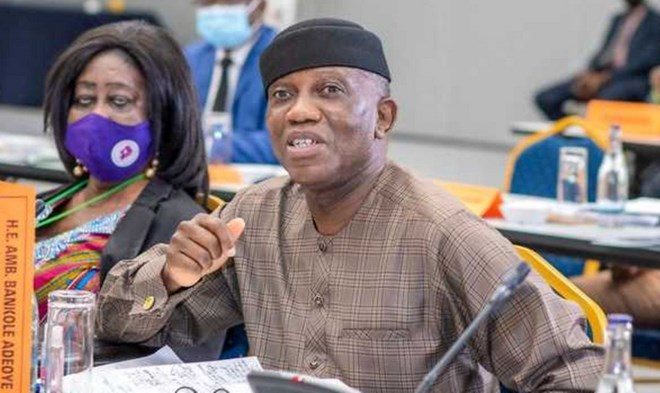
Sunday November 14, 2021

AU Commissioner for Political Affairs, Peace and Security spoke to FRED OLUOCH about peace and security on the continent.
What is AU doing about the crisis in Sudan?
All the challenges call for political cohabitation. We know that the Sudan situation is precarious for security and political governance. But we are calling for dialogue. We call for all stakeholders to sit at the table because we know that any military intervention will not solve the challenges on our continent. The challenges need multidimension responses.
Is it possible that elements of the al-Bashir 30-year rule are still too powerful and capable of destabilising Sudan?
It is obvious that the government that has been in power for three decades will still have challenges going into the new dispensation. What the AU is doing is to engage the current leaders in Sudan to make sure that they see the light at the end of the tunnel.
There are concerns that Sudan could relapse into civil war. Comment?
We are monitoring closely the situation in Sudan. We know that Southern Kordofan, Blue Nile has some remnants of rebels and there are pockets of violence in Darfur, which is still volatile.
That is why the Military Sovereign Council and the civilian wing must work together for the good of the country. People are in the streets demonstrating for democracy to be restored, and that is inspiring to the AU.
But we at the AU appeal for calm and that those demonstrators must remain peaceful and abide by the rule of law of the country even as they exercise their fundamental freedom.
Does AU have the capacity to end the conflict in Africa?
Of course, it does. The AU was created to ensure that we don’t bequeath conflicts and wars to the next generation. That is why we came up with a 50-year plan, the agenda 2063. A plan that looks ahead to the future of the continent. We need to constantly develop the capacities of our institutions. Conflict prevention, mediation and dialogue. That is why we have to strengthen our security sector reforms. The military cannot be in politics and still maintain their statutory duty of maintaining peace and maintaining the territorial integrity of their countries. We need a military that is subservient to civilian authority. That is the bedrock of the foundation of democracy. The capacity is there but we need to strengthen the capacity of all our institutions.
Is the security situation in Africa getting better or worse?
It is two-edged. In the past seven months, we have had cases of changes in government that are not palatable. At the same time, we also had cases of nine countries that have held elections on schedule and successfully despite Covid-19, which shows that these nine countries have shown commitment to democracy. In three of the nine cases, the opposition has won the elections in Zambia, Sao Tome and Cape Verde.
We know that on one side democracy is getting better, while at the same time there are cases where Covid-19 is being used to restrict freedom. When you look at the two sides, the unconstitutional changes of government that we have had in Guinea and the second coup in Mali. While there has been a consolidation of democracy in some countries, we still have problems in a number of countries.
Comment on concerns that AU is just watching as the South Sudan leaders fail to implement the September 2018 peace agreement
Peacebuilding is a very difficult task, it does not come easily. Peacebuilding is horrendous and expensive. And that is why the Peace and Security Council in March undertook a field mission in South Sudan. As I speak to you, the multi-dimensional peace support team will be going to South Sudan in the next few weeks.
Does the AU believe that Somalia will hold elections on schedule?
We are engaging the government of Somalia from two fronts. As we speak, we have a mini team of election observers to support the election process in Somalia. Secondly, the AU has provided technical and financial assistance to ensure that the Federal Election Implementation Team in Somalia has the requisite material to conduct elections. What is clear is that we see Somalia as a post-conflict, reconstruction and development country. Somalia is among seven countries that we have given priority to ensure that their security sector reforms are maintained. AU wants to embed principles of post-conflict in Somalia.